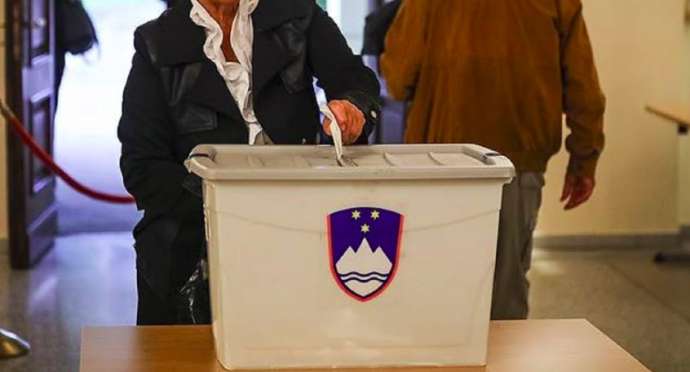STA, 2 December 2018 - Slovenian voters appear to have opted for change in the mayoral run-off on Sunday as they showed many incumbents the door to usher in newcomers that promised a sea-change in the way their communities are managed.
With elections held in 56 municipalities, perhaps the biggest surprise came in Koper, where radio host Aleš Bržan appeared to have defeated incumbent Boris Popovič.
But after Popovič already conceded, the local electoral commission revealed the gap was only twelve votes - more than 25,000 ballots were cast, so there is still a chance postal ballots, which will be counted tomorrow, may change the result.
In Maribor, businessman Saša Arsenovič convincingly defeated former mayor Franc Kangler after the incumbent, Andrej Fištravec, was drubbed in the first round.
When the final tally was made, Arsenovič carried the vote with 58%, having campaigned on his record as successful businessman and promising to turn the city's economic fortunes around.
The vote pitted the more urbane Arsenovič against the more rural Kangler, who had been ejected from office in 2012 under a cloud of corruption allegations that he has mostly deflected in court since then.
Changes in all other run-off races
All other municipalities classified as urban holding run-offs also got new mayors tonight.
In Kranj, Matjaž Rakovec, the former chief executive of insurer Zavarovalnica Triglav, will fill the mayoral seat vacated by Boštjan Trilar. He won 68% of the vote against the independent Zoran Stevanović.
In Nova Gorica in the west, the 43-year-old Klemen Miklavčič defeated two-term Mayor Matej Arčon with 51.6% of the vote, despite Arčon having a 12-point lead in the first round.
Tilen Klugler, an independent endorsed by centre-left parties, emerged victorious in Slovenj Gradec in the north-east, edging the incumbent Andrej Čas with 52% to 48%.
And in eastern municipality of Ptuj, Social Democrat (SD) Nuška Gajšek has become the sole woman mayor in one of Slovenia's 11 urban municipalities as she surprisingly defeated the former mayor Štefan Čelan with nearly 67% of the vote.
Several larger cities that are not classified as urban municipalities got new mayors as well.
Prime Minister Marjan Šarec's party lost primacy in its home base in Kamnik as his chosen successor at the mayoral office, Igor Žavbi, was defeated by the candidate of the conservative New Slovenia (NSi) Matej Slapar.
In Jesenice in the northwest, Blaž Račič, 44, a correspondent for the daily Delo, ended the 12-year reign of Tomaž Tom Mencinger with a convincing 64.6% of the vote, having already narrowly won the first round.
And in Črnomelj in south Slovenia, a staunch anti-immigrant platform did not help Democrat (SDS) candidate Maja Kocjan, who was defeated by businessman Andrej Kavšek with a clear 72.9% of the vote, having already convincingly carried the first round.
All in all, only 11 incumbents who entered the run-offs secured re-election, a stark contrast to the first round, when incumbents posted serial wins.
But it was not all upsets, as Tržič, where the campaign was bitterly fought, delivered a resounding win for the incumbent Boštjan Sajovic against former mayor Pavle Rupar.
In Brežice, long-serving mayor Ivan Molan stood his ground, as did Toni Dragar in Domžale.
At the cumulative national level the trend has changed little, albeit keeping with a long trend.
The People's Party (SLS) remains the strongest force with 26 mayors in 2012 municipalities, largely thanks to a strong base in small, rural communities. The Democrats (SDS) have 17 and the Social Democrats (SD) 16.
The three dominant political forces on the local level have long been losing ground to mayors who are running as independents (although some have very clear political pedigrees).
There are now 123 mayors classified as independents, up from 115 four years ago, with another eight fielded by multiple parties, the same as in 2014.
However, there has been a reversal of the trend of declining voter engagement, as turnout stood at 48.4%, almost two points below that of the first round but five points higher than in the run-off in 2014.






